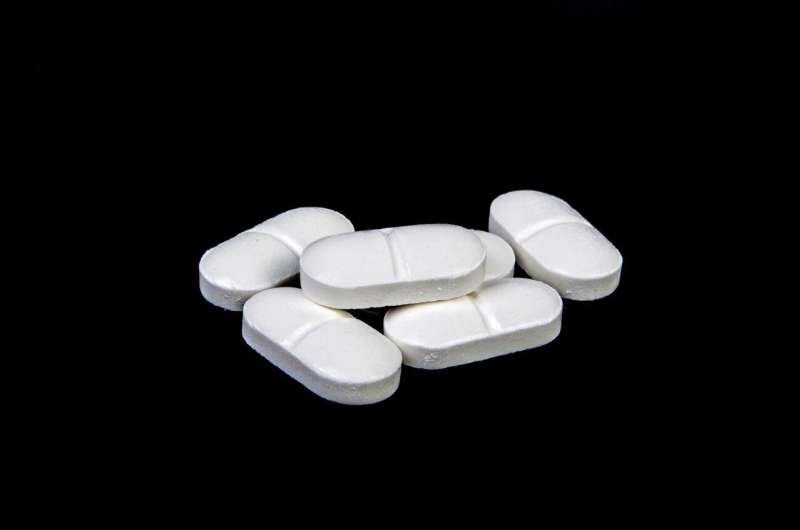Credit: CC0 Public Domain
A one-month treatment of dual anti-platelet therapy is safe and as effective as a longer duration of therapy at preventing cardiac events in patients one year after stent placement, according to late-breaking research presented today at the American Heart Association's Scientific Sessions 2020.
"This study is the first randomized trial comparing one-year clinical outcomes of one-month of dual anti-platelet therapy followed by aspirin monotherapy to the currently recommended dual anti-platelet therapy regimen in patients with coronary artery disease who are recovering from stent placement," said lead study investigator Myeong-Ki Hong, M.D., Ph.D., professor of cardiology at Yonsei University College of Medicine, Severance Cardiovascular Hospital in Seoul, Korea.
Patients recovering from artery-opening procedures involving a stent are prescribed one or more anti-platelet medications (to help keep platelets from sticking together), typically for months, along with aspirin to prevent blood from clotting in the stent. This is known as dual anti-platelet therapy. Dual anti-platelet therapy, also known as DAPT, can pose a significant risk of bleeding for patients who are already taking blood thinners.
Most studies evaluating a shorter course of DAPT have focused on patients at high-risk for bleeding. Additionally, many recent studies have also focused on patients receiving a class of antiplatelet known as a P2Y12 inhibitor monotherapy rather than aspirin monotherapy after a shorter course of DAPT.
Researchers in this study evaluated and compared the safety and effectiveness of two durations of dual anti-platelet therapy in patients who had drug-eluting stent placement or polymer-free drug-coated stent placement and were not at a high-risk of bleeding.
Across 23 medical centers in Korea, 3,020 Korean patients (mean age 67; 31% women) were randomly assigned to receive either:
- one-month of dual anti-platelet therapy after polymer-free drug-coated stent placement followed by 11 months of aspirin alone;
- or 6-12 months duration of anti-platelet therapy followed by 0-6 months of aspirin alone after drug-eluting stent placement procedure.
Drug-eluting stents are coated with a polymer that slowly releases medication designed to reduce the risk of the artery reclogging. Polymer-free drug-coated stents are a newer type of stent created to address potential inflammation caused by polymer.
Most of the patients (2,969) completed a one-year follow-up. Analysis found there was no significant difference in the number of cardiac events between the two groups: 5.9% of patients in the one-month treatment group died or had a heart attack, stroke, major bleeding or stent/ angioplasty procedure, compared to 6.5% in the six- to 12-month treatment group.
"It is encouraging to see that one-month dual anti-platelet therapy, followed by aspirin monotherapy after polymer-free drug-coated stent is effective and safe in a diverse group of patients with coronary artery disease," Hong said. "These results also could lead to the suggestion for some patients to discontinue a P2Y12 inhibitor, rather than aspirin, in daily clinical practice, which could result in better patient compliance, lower costs, a lower risk of bleeding, and overall, more convenience for both patients and physicians."
Provided by American Heart Association





















